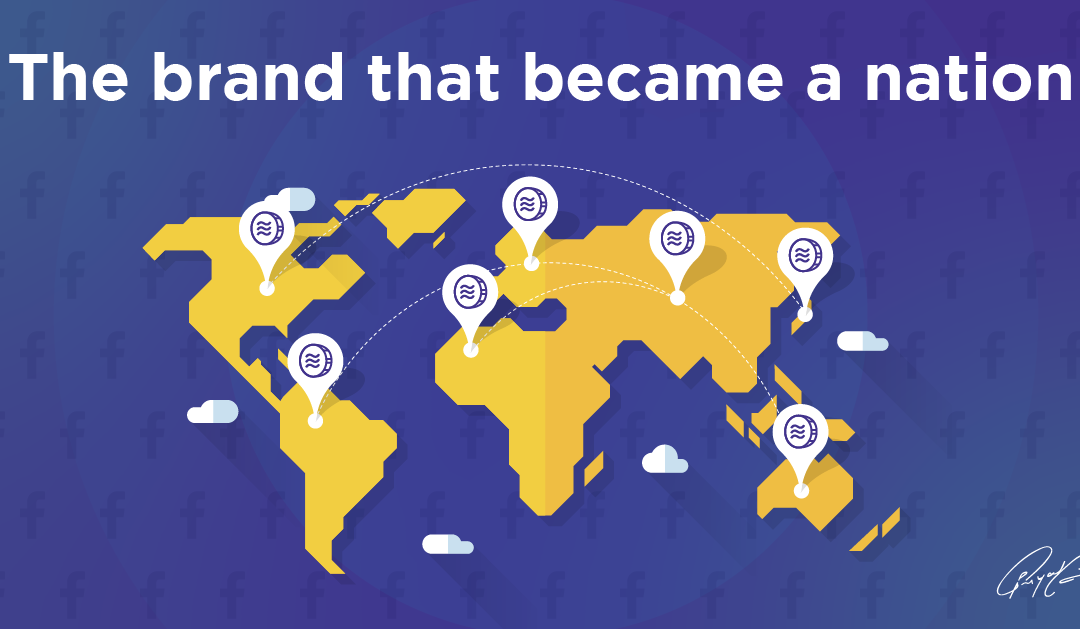The brand that became a nation: How Facebook’s Libra project is making us rethink the world we live in
Many analysts believe that when you are one of the biggest, most impactful advertising platforms in history, launching a product is a piece of cake, but that may not be the case with Facebook’s Libra Project.
Libra is the single denominator for a series of intertwined developments that as of now include concepts for a digital currency, a payments network, and a series of either existing or augmented products serving as infrastructure. These concepts are not exactly new (and in the case of Facebook they have not seen the light of day) but are already influencing potential users, nations and governments with both hopes and concerns. Why is this happening?
A brief history of private currency
Money as we know it – dollars, euros, rupees, yuans, you name it – is a modern invention known as fiat money. But fiat wasn’t always there for us to earn, save, spend and invest. Up until the early 20th century, it was not uncommon to come across private currencies, bills and notes issued by privately-owned banks, commercial entities and businesses. These notes had obvious limitations (its acceptance was often bound to certain geographical areas, and they were exposed to countless risks), but also gave the issuers financial firepower, and a greater degree of control over a number of dynamics (wages, credit) within regional/limited economies.
The rise of the modern nation-state saw the decline of private money, with governments banning these notes on behalf of national currencies issued by central banks. Fast forward a century, and we find ourselves in front of private money again, this time as cryptocurrency in its virtually endless forms. But what makes Libra different from early private money and other cryptocurrencies? The answer can be summarized in 2 related concepts: scale and ease of access.
A company, a brand…a State?
While most cryptocurrencies are technically private, they’re hard to get, store, and use by the general population, and rarely accepted – or even heard of – in most scenarios. If we look at adoption/acceptance rates, even Bitcoin pales when compared to any given national currency.
Facebook, on the other hand, seems to be playing a whole different game. The proposed platforms/vehicles/storages of Libra are already being used by billions of people, albeit for different purposes: we are talking about WhatsApp and Facebook Messenger, among others. This is nothing but a quantum leap into accelerated adoption and acceptance rates, and for a sheer number of users the inclusion of Libra within those product environments will likely feel more like a new feature rather than a new, unknown thing.
It’s a daunting scenario that raises many questions. What will happen to the not-so-strong currencies that – despite their ups and downs – still rule the lives of hundreds of millions around the world? Will the holders of Argentine pesos or post-Brexit pounds run en-masse to the far more extended, accepted and easy-to-purchase Libra?
Further down the line comes the bigger, perhaps more philosophical question of who and what makes money in the 21st century. If Libra, powered by Facebook’s far-reaching digital infrastructure and well-known brand, sees massive adoption by citizens of dozens of nations, how will the company be regarded? Will it become a supranational entity? A global central bank? A social network?
As of today, the most exciting aspects of Libra lie within the discussion that surrounds it. The prospect of it can be exciting, scary, and controversial, but it’s still a prospect. Perhaps, we’re headed for a world where both fiat and private money become a thing of the past, leaving pass to a new one: the era of “brand money”. To imagine such a world, its risks and implications is the least we can do for now.





Recent Comments